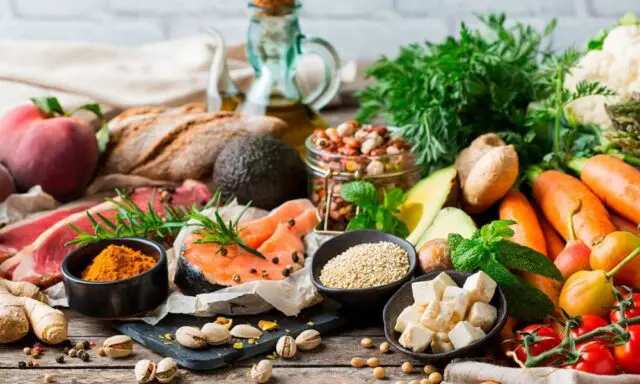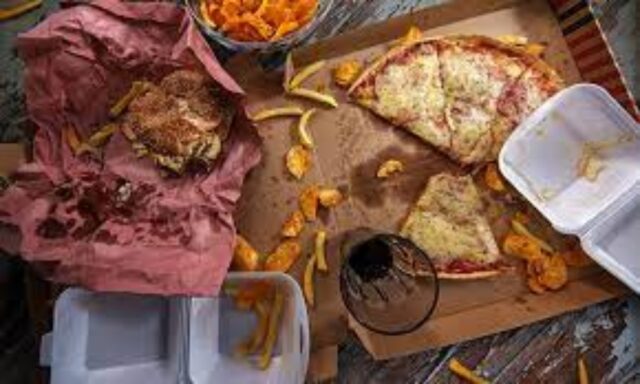Blanca Díez is a dietitian-Nutritionist who specializes in changing eating habits through a process that causes the growth of the personal skills of the people I accompany and their nutritional transformation. She has more than 15 years of experience, where she has been feeding some of the most relevant hospitals in Palma de Mallorca, among which the Son Llàtzer Hospital, the Son Dureta University Hospital, the Son Espases University Hospital and the QuironSalud Palmplanas Hospital.
Food is one of the most important acts that living beings do, there is no doubt about that. However, it is not only something physical, but eating is also something emotional, is it not?
Currently, there are many factors that affect our diet, indeed, we not only eat in response to a physical need; it can also depend on other social and emotional factors.
That is why it is important to bear in mind, when accompanying people on their journey towards a change in healthier eating habits, that all changes are inspired by a prior awareness, so that they are fully aligned with their physical well-being. , emotional and social
Are we talking about what is known as “eating psychology” or “emotional eating”?
The psychology of food is certainly a very complex term, in which the psychologist and nutritionist collaborate together to carry out the psycho-nutritional treatment of the person. However, emotional eating is something that is present in all of us and that does not necessarily have to be associated with the need for psychological therapy.
How does emotional eating become a habit more on a day-to-day basis?

On the one hand, emotional eating is something learned, from a young age our reference adults impact us with messages that, even with the best of intentions, can have different interpretations depending on the person who receives it.
They are messages of this type for example “if you behave well you can eat…” or “until you eat this, you cannot eat that”.
At the end, the message that is received is that in the face of a “positive behavior”, there is a reward (which is usually from a sugary product), which in adulthood can lead to being rewarded with this type of food.
Also to calm down as children we have been able to hear phrases recurrently such as “don’t worry, now we buy a…” which can also lead us to use a specific food to feel better.
Nowadays, there is a lot of talk about mindful eating; what does this type of diet consist of?
It is about guiding the person so that they realize what their way of eating is currently and what their relationship with food is like, helping them to detect limiting behaviors, thoughts and beliefs regarding their eating.
Being aware is the first step to take when we try to do things in a different way, since if we do not know what is happening to us it will be impossible to solve it.
For example, the situation we are currently experiencing, related to the sharp rise in electricity prices; how can it affect our conscious eating?
The idea would be how through being more aware of my diet I can live with the current situation and the rise in electricity prices. Being aware helps you see a wide range of possibilities within a specific situation in the environment.
It is a question at this point of moving from the complaint, which is totally legal, but which, nevertheless, does not help us to move forward, to responsibility and freedom. From this point of view, I am able to realize that, as much as I complain, the price of light is what it is, and that what I can do about the price of light only depends on me.
What could a person who lives this situation and that is affecting him nutritionally do?

This situation invites us to reflect on what ways to make the shopping basket cheaper I can start practicing or how I can cook differently to cushion or compensate for this strong rise in the price of the electricity bill.
Consume more fresh, seasonal and local fruits, and vegetables- Their price is cheaper, since they are at a time of high production and as there is more supply, the price lowers. On the other hand, if we use it for “raw” consumption, we save the energy to cook them.
Fresh fruit for dessert- It is related to the previous point, adding that this way we save in the shopping basket by replacing the purchase of dairy desserts that do not have a good nutritional profile. We can stop allocating money to the consumption of products rich in sugar that we do not need, they do not contribute anything to the consumer’s diet and make their purchases more expensive.
Meat and fish- These foods also make our shopping basket more expensive, so we could look for other cheaper sources of protein, which are also healthier, such as legumes and eggs.
Buy legumes and canned vegetables- There are foods that are little processed and that not only can help us make life easier, but they can also help us save energy because they need practically no preparation.
As I said in the previous point, legumes are a good source of protein and are also cheaper than other foods. And if, in addition, we buy it already boiled instead of raw, the benefit for the pocket is double. With regard to vegetables and the loss of nutrients because they are not fresh vegetables, this point would complement the first point in which we already buy seasonal and local fruit and vegetables for raw consumption.
Energy efficiency- Cooking for several days or a higher number of servings will allow me to cook fewer times a week and, therefore, in the long run, a lower energy expenditure, if I also take advantage of the hours when light is cheaper, energy efficiency multiplies.
Can a person really discover their diet through creativity, independence and freedom? How?
These 3 qualities are fundamental in the process of changing habits, because they allow people to enjoy and learn by exploring and experiencing their diet from another place.
Dieting does not work because, among other things, our freedom of decision is undermined, since we are told what to eat; that is, our creativity because we are told how to cook what we eat, and our independence because we are also told when to cook.
From my point of view, I accompany people to find new recipes that fit perfectly with their vital moment and with their lifestyle, according to their culinary skills, with the time available, with their food preferences and with their tastes and that of their family, which causes the person to discover a wide range of possibilities that transcend what they have learned about griddle, oven, boiled and salad.
Therefore, I guide them so that they are the protagonists when creating their recipes and menus, having all the power in their decision-making, they decide from freedom and from their independence; what they will eat, how they will cook it and when they will eat it, and this is a powerful motivator in which the security of being doing it according to their objective is mixed together with the autonomy and enjoyment of doing it.
Sometimes, depending on the type of emotion we feel, we use food as an “emotional anesthesia”. Why do we eat to cover up our emotions?
As I have said before, emotional management through food can be behaviors learned as children, to all this we should add the fact that we have not been taught to manage our emotions effectively. That is, on the one hand we have been taught to do it like this, and on the other, we do not know any other way to do it.
For this reason, during the sessions the growth in nutritional-emotional intelligence is provoked in which to begin with, the emotions that negatively impact our way of eating are detected and once that awareness has occurred, different strategies are sought to help the person to manage their emotions without resorting to food.
How can we differentiate physical hunger from emotional hunger?
When hunger responds to a physiological need, as a general rule we are able to choose food consciously, in terms of quality and quantity, being these adequate for our feeling of hunger, we savor the food we are taking, and when we finish we have a feeling of satisfaction.
On the other hand, when the diet responds to an emotional need, we usually eat highly palatable foods (that is, rich in sugar and fat) in sometimes excessive amounts, it may happen that we eat more quickly or that it gives us the sensation of swallowing, or of not be savoring what we are eating.
At the end, the feeling is usually of discomfort, both physical, from having eaten too much, we can feel unpleasantly full, as well as emotional, appearing feelings of guilt or frustration that enhance the emotion that I felt at the beginning and that has led me to eat In the first moment.
What advice or recommendations would you give to a person who wants to learn to eat “mindfully”?
The main recommendation would be that you try to get back in touch with the feelings of hunger and fullness in your body. Our body is wise and is always capable of transmitting to us what it needs, our mission is “simply” to listen to it and act accordingly.
Another recommendation is that you do not try to control your diet, because there are no barriers to our eating if we learn to listen to ourselves with intuition, it is about learning to observe ourselves, to listen to us, to attend to ourselves, to understand ourselves and to have fun taking care of ourselves.
And in case you need help, I would recommend that you look for a dietician-nutritionist who has a holistic perspective that not only focuses on behaviors because we are much more than what we eat; we are what we think, what we feel and how we feel. We relate to ourselves as we do so.
For this reason, nutritional interventions based only on modifying behaviors do not usually lead us to obtain the results we expect because, based on what I think, I feel; And just as I feel, I act as well.

